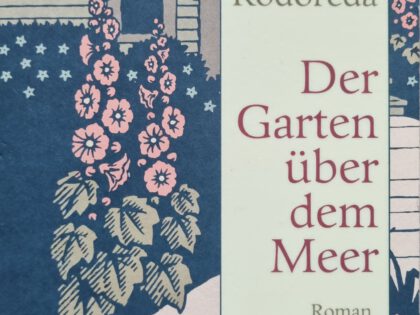“Given the absence of mind-reading technology, humans believe monogamy is possible.“
Wie blicken Aliens auf die Menschheit? Nicht sehr positiv und wohlwollend, zumindest nicht in dieser Geschichte. Die Vonnadorians sehen sich als eine Art Bewacher des Universums – und in diesem Fall muss das Universum vor den Menschen – und diese vor sich selbst – verschont und geschützt werden.
“We act as a result of logic, of rational thinking. We are here to preserve, even to preserve the humans. Think about it. Progress is a very dangerous thing for them.“
Der ultimative Fortschritt würde erreicht, wenn die als unlösbar geltende Riemann-Hypothese gelöst würde. Andrew Martin, Professor der Mathematik in Cambridge, gelingt dies. Und das ist exakt der Moment, in dem die Vonnadorians eingreifen: Sie entsenden einen der ihren, um all jene zu töten, die von dem Durchbruch erfahren. Der Entsandte zerstört zwar die gewonnenen Erkenntnisse, mit dem Töten tut er sich aber schwer. Womit die Vonnadorians nicht rechnen ist, dass der von ihnen Entsandte Gefallen an den Menschen und am Mensch-sein findet, trotz der vielen Mängel.
“Oh, they had built rockets and probes and satellites. A few of them even worked. Yet, really, their mathematics had thus far let them down. They had yet to do the big stuff. The synchronization of brains. The creation of free-thinking computers. Automation technology. Inter-galactic travel. (…) I realised I was stopping all their opportunities. I had killed their future.“
Matt Haig hält den Menschen, dem Leser, mit „The humans“ den Spiegel vor. Auf komische Weise – wir wissen von all den menschlichen Unzulänglichkeiten und werden auch nach dieser Lektüre nichts daran ändern. Aber die Außen-Sicht ist unterhaltsam und erfrischend, aber auch deprimierend.
“As well as religion, human history is full of depressing things like colonisation, disease, racism, sexism, homophobia, class snobbery, environmental destruction, slavery, totalitarism, military dictatorships, inventions of things which they have no idea how to handle (the atomic bomb, the Internet, the semi-colon), the victimisation of clever people, the worshipping of idiotic people, boredom, despair, periodic collapses, and catastrophes within the psychic landscape. And through it all there has always been some truly awful food.“
Noch ein Beispiel:
“Humans were always doing things they didn‘t like doing. In fact, to my best estimate, at any one time only point three per cent of humans were actively doing something they liked doing, and even when they did so, they felt an intense amount of guilt about it and were fervently promising themselves they‘d be back doing something horrendously unpleasant very shortly.“
Dabei ist es im intergalaktischen „Ausland“ nicht zwingend schöner, die Wesen nicht unbedingt glücklicher.
“Well, just existing is different. No one dies. There‘s no pain. Everything is beautiful. The only religion is mathematics. There are no families. There are the hosts – they give instructions – and there is everyone else. The advancement of mathematics and the security of the universe are the two concerns. There is no hatred. There are no fathers and sons. There is no clear line between biology and technology. And everything is violet. (…) It‘s the dullest life you can imagine.“
Natürlich schildert Haig nicht nur die Außensicht seines Aliens und wie dieser die Paradoxen und Unzulänglichkeiten der Menschen erlebt und in so manches Fettnäpfchen tritt. Die Handlung lässt sich aber nur schwierig andeuten, ohne zu viel zu spoilern. Es gibt einen kleinen Spannungsbogen. Es gibt einen treuen Hund. Es gibt sehr gute Unterhaltung. Die perfekte Urlaubslektüre.


